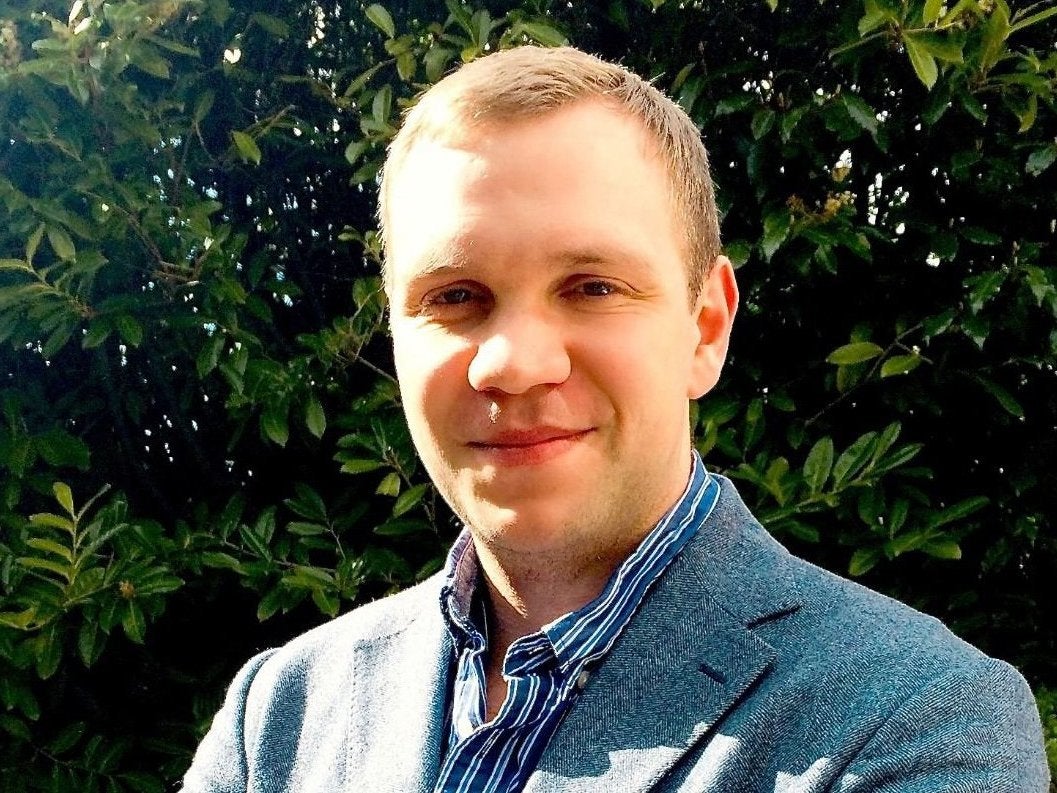Matthew Hedges: British academic jailed by UAE for ‘spying’ says government did not do enough to help him
PhD student says he remains dependent on the drugs he was force-fed during six months in solitary confinement

A British academic who was jailed in the United Arab Emirates (UAE) on spying charges has accused the Foreign Office of not doing enough to secure his release.
Matthew Hedges, a Durham University PhD student, was sentenced to life imprisonment by the Gulf state after he was accused of working for MI6.
But he was pardoned in November by the nation’s president and returned to his home in the UK following a campaign led by his wife Daniela Tejada and interventions from the foreign secretary Jeremy Hunt.
Emirati officials nonetheless continued to call Mr Hedges a spy, an allegation denied by his family and colleagues.
Now the 31-year-old has told The Sunday Telegraph that he has filed a formal complaint to the Foreign Office accusing it of doing too little to help secure his release.
He has also complained that the Foreign Office has done nothing since he was freed to get his spying conviction lifted, despite the government’s statement that he is not a British spy.
Mr Hedges told the paper he is taking action not only for himself but for dozens of others, such as Nazanin Zaghari-Ratcliffe, the British-Iranian mother convicted in Iran of spying.
A year on from his arrest, Mr Hedges said that he remains dependent on the drugs he was force-fed during six months in solitary confinement.
During his detention, Mr Hedges was interrogated without a lawyer or consular access. A representative for the family said that his mental and physical health had “seriously deteriorated” during this time.

Mr Hedges said he now struggles to cope in large crowds, finds it hard to concentrate and has difficulty with bright lights.
“There are flashbacks and nightmares,” he added.
Along with his wife, he is also considering taking legal action against the Foreign Office, the Sunday Telegraph reported. Ms Tejada told the newspaper her husband’s case as “an injustice” that had “compromised” both their lives.
She said her husband was freed weeks after she spoke to the press last October, following months of being told to stay quiet by the government.
“While finally the Foreign Office did step up and intervene it took them seven months and a lot of private and public pressure for them to take action,” she said. ”It is not acceptable that they now pretend that Matt is free and can carry on with his life. It is unacceptable the British government now pretend nothing happened.”
Mr Hedges’ lawyer, Rodney Dixon QC, told the paper: “The Foreign and Commonwealth Office should be taking all possible steps to clear Matthew’s name, especially as he was wrongly convicted by the UAE of being an agent of the UK government. And yet they have flatly refused and left him in the lurch.”
A spokesperson from the Foreign Office confirmed officials had received Mr Hedges’s complaint and it would be investigated.

“We are delighted that Matthew was able to return to the UK and reunite with his loved ones, after his ordeal,” they said. ”As the foreign secretary has said, our ministers and staff, in the UK and the UAE, worked incredibly hard to support Matthew and his family during his detention and following his release.
“The foreign secretary and Foreign Office ministers raised Matthew’s case with the UAE authorities at the highest levels, including with foreign minister Abdullah bin Zayed, stressing the need for due process and raising our concerns about his welfare. Our staff maintained regular contact with Matthew and his family in the UK, updating them on developments in his case when we had information we could share, in compliance with our legal obligations under the Data Protection Act.”
Additional reporting by Press Association
Join our commenting forum
Join thought-provoking conversations, follow other Independent readers and see their replies
Comments
Bookmark popover
Removed from bookmarks